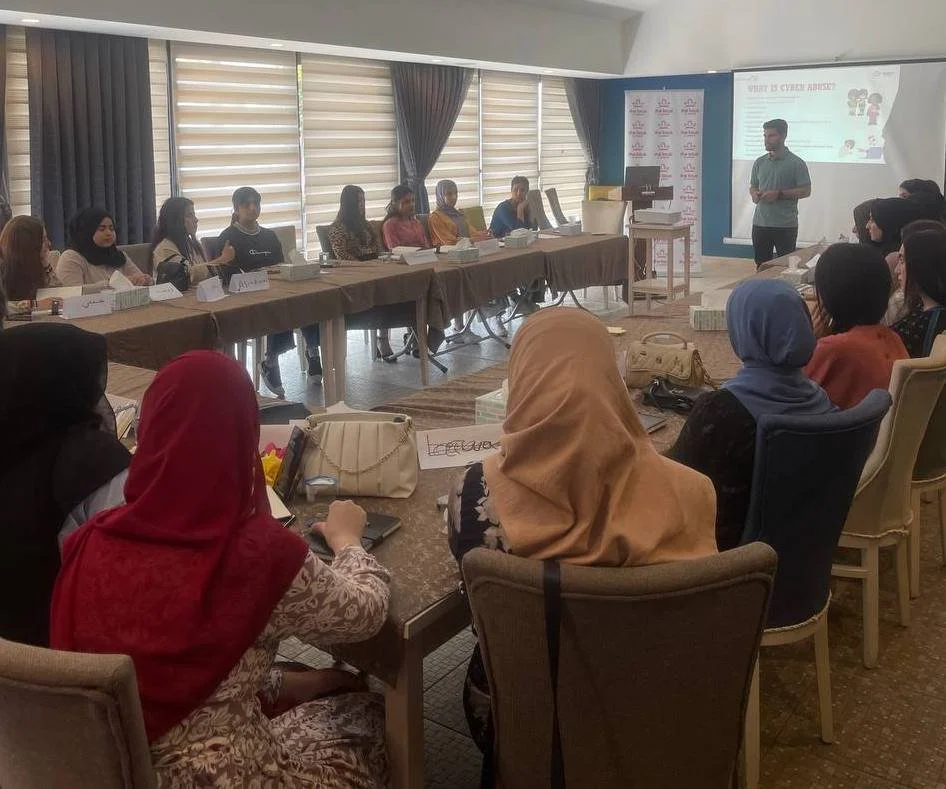Our new campaign: How to stay safe online
As part of our Cyber Sisters project, we’re working to help ensure all women and girls can better protect themselves from cyber abuse and violence.
Cyber-crimes have been rising globally since the pandemic, with some of the most common threats including:
· Hacking – including of social media and email passwords.
· Phishing – bogus emails asking for security information and personal details.
· Malicious software – including ransomware through which criminals hijack files and hold you to ransom, usually demanding money.
· ‘Sextortion’ – where a criminal threatens to share sensitive content like photos or videos unless you pay money.
Cyber violence can also take many other forms, including hateful comments, bullying messages, threats, hypersexualised or pornographic images and surveillance through email, messaging apps and social media platforms.
Staying safe
But by being aware and taking a few simple steps to minimise risk, it’s possible to enjoy the internet and engage in the digital world, while staying safe. These are some of the ways you can make sure you are better protected and less likely to be the victim of a cybercrime:
· Instal antivirus and malware software on your device and update it regularly.
· Use strong passwords and switch on two-factor authentication on platforms like Facebook.
· Only open trusted attachments. Don’t click on any links you don’t trust.
· Only download apps from trusted providers.
· Always be wary of strangers befriending you on social media and asking for photos – especially if they are intimate.
· Never be afraid to say ‘No’ if you’re asked to share content – especially intimate photos.
· Review your settings on your social media sites and consider making your accounts private.
· Be cautious when offers or discounts for items seem ‘too good to be true’ and always verify sellers using trusted review sites.
What to do if you’re a victim
If you think you have become the target of a crime such as blackmail or ‘sextortion’, follow these simple guidelines:
· Cease all communication with the perpetrator.
· Don’t agree to the blackmailer's requests.
· Keep all evidence, such as screen-grabs, and note the date, time and any website you’ve been directed to.
· Report it to police.
· Confide in an adult or friend you trust – such as a parent, teacher or counsellor. Never suffer alone.
How to get support
For additional support in Kurdistan, a special hotline is available for victims of violence and abuse – which includes cybercrime. Call 119 to receive support, counselling, and referrals to community-based services and resources in the region.
You can also find more information from the following reputable sources to help you stay safe online:
· Interpol cybercrime campaign - #YouMayBeNext
· Europol awareness and prevention
· Advice on online safety from the National Cyber Security Centre (UK)
Watch our campaign video below
As part of our Cyber Sisters campaign, we have produced the following video for social media.
Thank you to our project partners, the Foreign, Commonwealth & Development Office who have kindly funded this work through Cordaid as part of the ‘Women's Voices First’ programme, which supports female-led organisations to advance the Women, Peace and Security agenda in Iraq.
You can watch it here…

